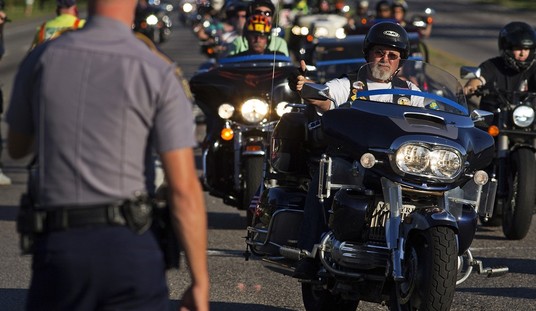Numerous knowledgeable courtroom observers sitting in on the Voter ID trial in Washington tell me that Texas Voter ID appears to be doomed. Four things are working against Texas.
First, it appears that each side has rushed their cases, and both sides seem ill-prepared. This hurts Texas more than it hurts DOJ because Section 5 contains a burden shift. The burden shift requires Texas to prove by a preponderance of the evidence that it has a clean soul — that there was absolutely zero discriminatory intent, and zero discriminatory statistical effect, in passing voter ID. That is really tough to do on an accelerated schedule. The battle over statistics has become a “mess,” according to one of the judges.
The Justice Department has cited a study by Harvard University Professor Stephen Ansolabehere that found the Texas law would force nearly 2 million people to get new photo IDs or be unable to vote in the next election.
A disproportionately large number of those voters are Hispanic and black, the department said.
Texas presented a study by University of Texas Professor Thomas Sager that showed the total figure was closer to 167,000 and that the Harvard study inflated the effect on minorities.
Justice Department lawyers attacked Sager’s findings, noting that he added 6 million people to the list of Texans with proper IDs even though their licenses were expired or they didn’t have proper ID at all.
This is bad news if accurate. If the Texas expert admitted that the effect on minorities was merely “inflated,” game over. If there is any discriminatory effect on minorities, Texas likely loses under the law. But worst of all, the fog about the real numbers may kill Texas.
Why? Because Texas has the burden of proof.
Second, the biggest thing working against Texas is the burden shift and the 2006 Voting Rights Act reauthorization. The reauthorization required states to prove an absolute absence of any discriminatory intent or effect. “Any” was added in 2006. If, for example, blacks have photo ID statistically in lower numbers than whites, that is a discriminatory effect. I’ve posted the roll call vote for the 2006 reauthorization before. Suffice to say very few Republicans voted against it. Among those who did were Steve King (Iowa), Trent Franks (Arizona), and Louie Gohmert (Texas).
Third, knowledgeable courtroom observers tell me that at least 2 of the 3 judges on the panel have clearly made up their minds and will rule against Texas. Judge Robert Wilkins seems to be “looking for ways to start working on his opinion against Texas,” one tells me.
Fourth, and finally, the Supreme Court doesn’t offer much hope for this sinking ship. These cases turn on complicated statistical facts and circumstantial evidence of intent. Trial courts make factual findings and appellate courts are bound by those findings. Section 5 is a fact-centric law, and therefore the trial courts have enormous power to determine outcomes. Apart from an outrageous ruling in the district court, the Supreme Court may have little to say on Voter ID because factual findings will drive the outcome, not errors of law.
Other states can learn a lesson from what is happening in a Washington, D.C., courtroom to the Texas Voter ID law. Take as much time as you need to prepare the case. Keep the constitutional challenge close in time to the trial on the merits. Don’t generate statistical data that hurt your case. And most of all, be prepared to wage war in a battle of experts. Otherwise the burden shift of Section 5 will be the undoing of other state Voter ID laws.










Join the conversation as a VIP Member